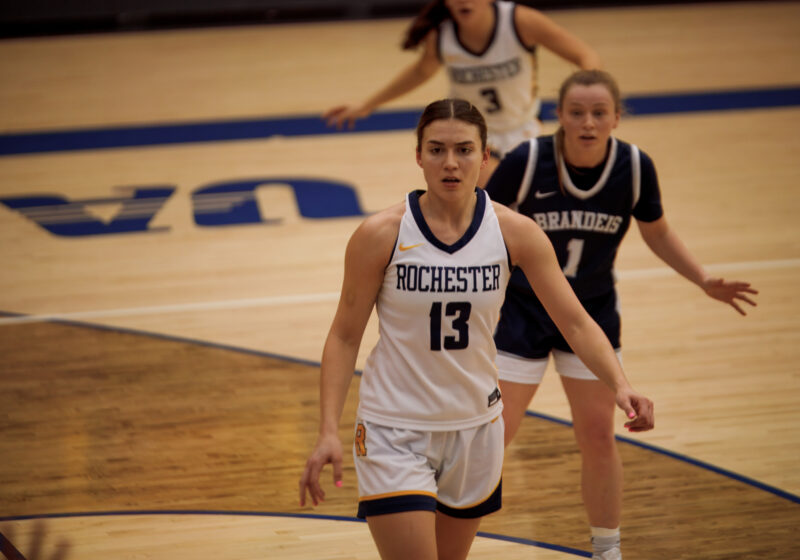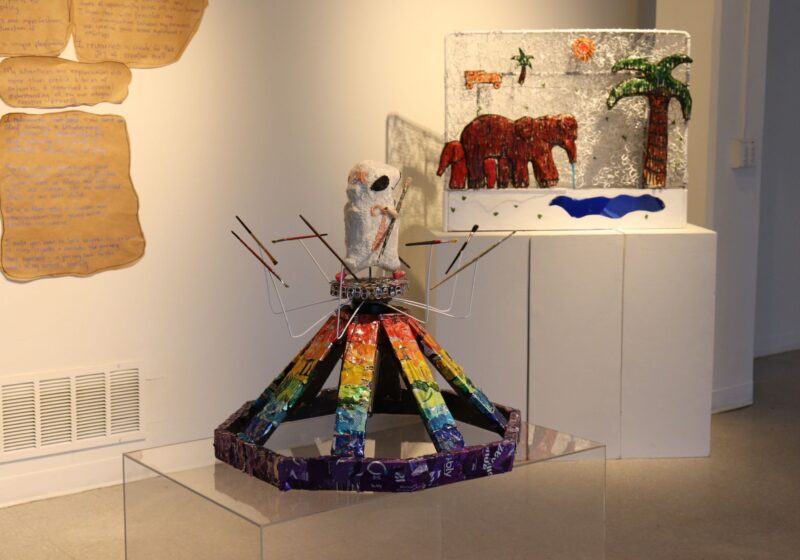In your first year or two of graduate school, as you try to start research, you are a lamp on the right side of the room, the Ph.D. is a wall socket on the left side of the room, and your adviser is the extension cord. Sometimes you have a brand-new cord, sometimes you have one that sparks and whose wires are showing, sometimes you need to daisy-chain them. Take the analogy in whatever way you want, and I think it still stands: They’re your gatekeeper. The decision of choosing an adviser may occur even before you know where you’re going as I remember shopping for “extension cords” on department websites three years ago.
As a graduate student, you are an investment. When you apply to programs, and you get in, you get in for a reason. That reason may not be apparent to you now, or ever, but you are an investment on behalf of the institution and the faculty who are interested in having you work with them. My adviser has invested so much in me. Because of my adviser, I am funded. Because of my adviser, I have collaborators at high-profile universities and national labs. Because of my adviser, I have a team of mentors. Because of my adviser, I have been able to go to summer schools. Because of my adviser I can attend, and get invited to, conferences. Because of my adviser I have the basics: an office with a window, a computer, and a nameplate on the door. Because of my adviser, for some reason, I trust that I will be able to get a job.
When I got into graduate school, despite wanting to do research, I never truly felt I belonged — even as an undergraduate. I struggle daily with the idea of calling myself a “physicist” — yet somehow I don’t feel any doubt that I can get a job doing physics after I leave here. I trust my adviser will help me understand what skills I need to have to be a good physicist, how to figure out what problems are good to work on, and what opportunities are asking to be seized. I do not feel talked down to. He listens to me, he asks me questions and for my opinion. He shows me respect.
He has also been my rock. I have struggled with overwhelming test anxiety. I attribute some part of my passing of the two-day written preliminary exam to him and his encouragement, knowing that, if I failed and got kicked out, he’d have a plan to have me do physics elsewhere. He helped me have a backup plan. During the past months, he listened to me as I have dealt with family strife and tragedy, and allowed me to take the time I needed to recoup. Despite all this, he hasn’t treated me differently. If anything, it has made him a better adviser as he can then gauge what I need and where I am at. This allows me to do research as effectively as I can knowing that we have the same expectations.
It’s a symbiotic relationship, where you’re just starting your career and they’re trying to maintain theirs. They’ve made it, and you have everything to gain under their appropriate guidance. This person can give you connections, this person provides your livelihood for a healthy portion of your young adult life. This person has power over you and your trajectory into your field and they are obligated to understand that.
This person can stay with you your whole life; you’re forever connected. People often refer to a researcher in my field as “he was one of Braginskii’s students.” This lineage emphasis in the culture can be illustrated by the fact that mathgenelogy.com exists. Your adviser helps to build these networks and structures in the grand scheme of things — and then if you find yourself as an adviser one day, you then carry their torch. If they abuse their position, those structures collapse.
This is illustrated by what has happened to the Brain and Cognitive Sciences Department. If Florian Jaeger is characterized as being immature as an excuse for his behavior in Mary Jo White’s report, then why was he given tenure? Why was it so hard for Jaeger to understand that, as a professor, he should not be sleeping with students and subordinates? To initiate such a relationship when you have the capacity to have authority over someone, at best, sets up a grooming situation. It’s inherently hostile, as a woman, to think that any positive interactions I could have with a male authority figure in my field would be primarily due to his attraction to me. I’m here to do my job, and how dare you view me as dating fodder.
I once went to a bar where I met a nice man I found attractive. As we talked, I learned he was a UR professor; I tell him I’m a graduate student in a different department.You know what happened? Nothing. When I learned he was a new hire professor, my brain said, “Nope, nope, nope, nope.” And unlike Aziz Ansari, I picked up on his body language, indicating that his brain was also saying, “Nope, nope, nope, nope,” and I felt an enveloping sense of relief. He continued ask me about my research and what I was studying and told me neat things to do around town. He treated the boundary with respect. It was a positive and friendly discussion, and I felt good leaving that bar. It’s not hard.
Aside from common sense, the take away from Title IX is that there exists no such thing as “informed consent” under such power structures even if you, the student, enthusiastically say yes. Why was this not acknowledged by White? There are cases upon cases of sexual misconduct between professor and student under Title IX. I hold countless stories of friends and colleagues who have not had relationships with their adviser like I do with mine. Some have left. It’s an arena ripe with abuse, so choose your adviser carefully.
When looking at departments, ask if graduate students are unionized and whether they’re considered students or employees. Title IX or Title VII under the Civil Rights Act may apply. With a union you are provided independent grievance procedures. Talk to other graduate students at visiting weekends and be candid with your questions and concerns. Ask your mentors here for recommendations of who to work with. Research relies on communication. Before researching, thoroughly research who you’ll be researching with.



